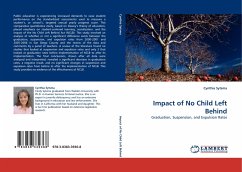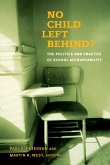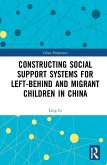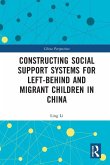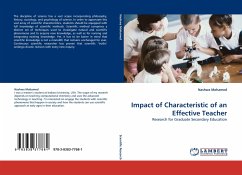Public education is experiencing increased demands to raise student performance on the standardized assessments used to measure a student s, or school s, targeted annual yearly progress score. This comparative quantitative study, based on Dewey s theory of education, placed emphasis on student-centered learning, socialization, and the impact of the No Child Left Behind Act (NCLB). This study involved an analysis of whether or not a significant difference exists between the graduation, suspension, and expulsion rates from 2000-2001 and 2005-2006 in San Diego County and the review of the data and comments by a panel of teachers. A review of the literature found no studies that looked at suspension and expulsion rates and only 3 that looked at graduation rates before implementation of NCLB to after its implementation. The final conclusions, drawn after all data were analyzed and interpreted, revealed a significant decrease in graduation rates, a negative result, and no significant changes in suspension and expulsion rates from before to after the implementation of NCLB. This study provides no evidence of the effectiveness of NCLB.
Bitte wählen Sie Ihr Anliegen aus.
Rechnungen
Retourenschein anfordern
Bestellstatus
Storno

